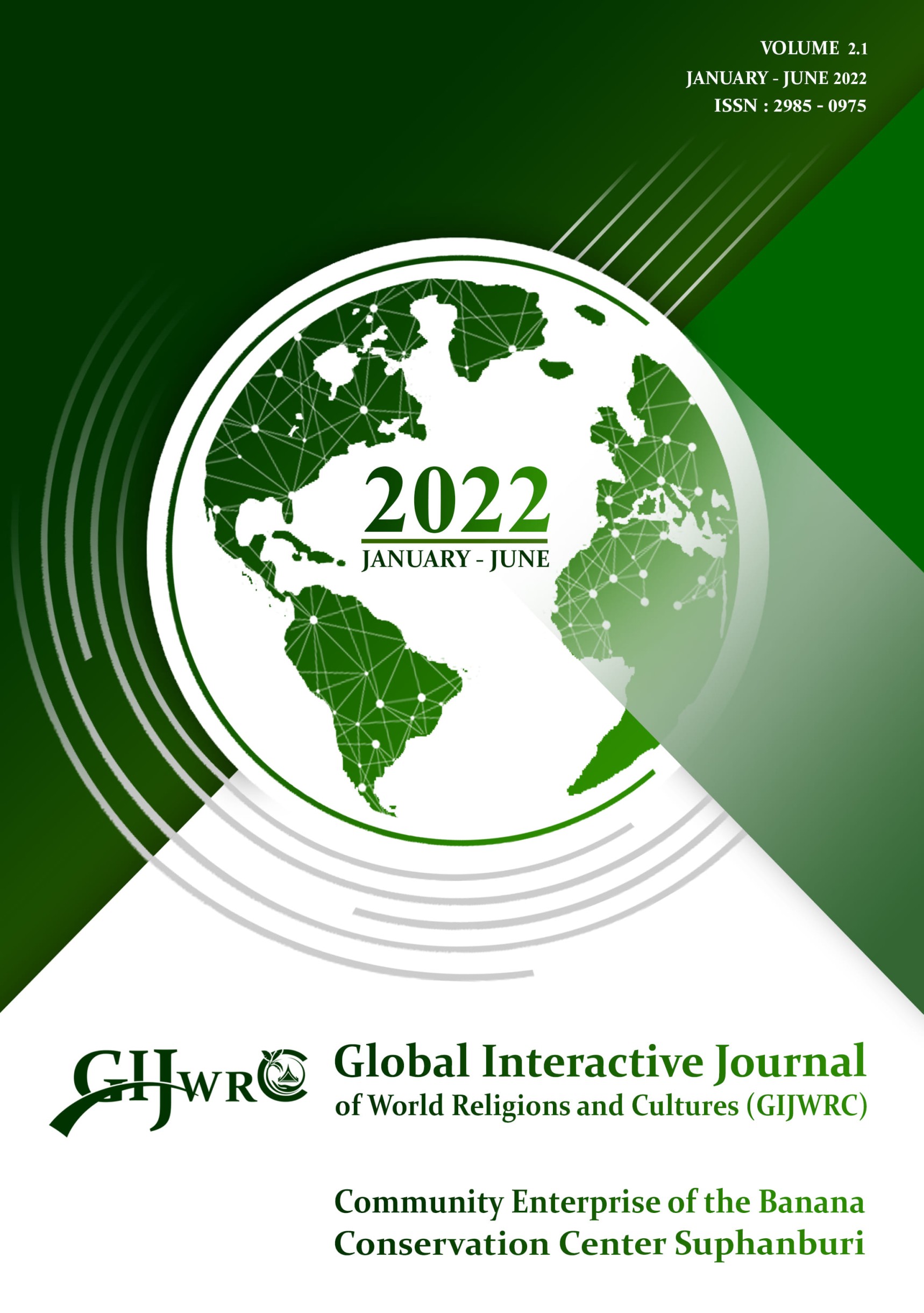THE CONCEPT OF THE DEVELOPMENT FOR STUDENT’S LIFE SKILLS WITH FIVE GROUPS OF EXISTENCE MANAGEMENT
Main Article Content
Abstract
Humans are creatures of the world that constantly train and develop themselves. Co-existence in society humans must be developed, self-improved in accordance with individuals and society. Having good life skills will allow individuals to live happily in society. Students who are at school learn to encourage themselves to improve their life skills, which is one of the important developments of the future in particular, the adoption of Buddhist doctrine as a guide to such development. It will cause physical and mental development, with morality as a directive. Improving students' life skills with five groups of existence management therefore, it integrates Buddhist Dhamma principles with the development of student life skills, aiming to propose about 1) student life skills, 2) five groups of existence management in Buddhist Dhamma principles and 3) the development of student life skills by managing five groups of existence management to present guidelines and knowledge in integrating Buddhist principles in Mahapunnamasutta in Buddhism and adapt to improving the students’ life skills, it is the creation of quality graduates according to the mission of higher education institutions.
Article Details
References
Mahachulalongkornrajavidyalaya. (2011). Tripitaka Version of Mahachulalongkornrajavidyalaya. Published in honour of His Majesty the King on the occasion of the 7th Anniversary of his birthday on December 5, 2011, Bangkok: Mahachulalongkorn rajavidyalaya press.
Department of Mental Health World Health Organization. (1999). Partners in Life Skills Education, (Conclusions from a United Nations Inter-Agency Meeting.
Office of the Basic Education Commission, UNICEF Thailand and Right to Play Thailand Foundation. (2017). (Thai Version), 21st Century Skills Education Teacher Manual Learning management to develop the 21st century life skills. (Published by Office of the Basic Education Commission, UNICEF Thailand and Right to Play Thailand Foundation).
Parpaipan Pumwuthisarn. (2020). Life Skills. Retrieved January 23, 2022 from https://smarterlifebypsychology.com/2020/03/).
Phra Brahmagunabhorn (P.A. Payutto). (2010). Buddhist Dictionary of The Dhamma Edition. (18th Edition). Bangkok: Permsab Printing.
Phra Brahmagunabhorn (P.A. Payutto). (2016). Buddhadham. (45th edition). Bangkok: Plidhamma. (Thai version)
Phramaha Yothin Yodhiko, Phra Sophonphathanapundit and Phrakru Sudhikhamphirayana. (2018). The Managements of Five Aggregates (Pañca-Khandha) for Problem Solution and Human Development in Buddhism. Dhammathas Academic Journal. 18(3) pp. 137-146.
Rachanee Tripipatkul and Suvin Ruksut. (2020). Integration of Life Quality Improvement Plan according to Buddhadhamma. Journal of Graduate Studies Review. 16(1) pp. 63-76.
Surasit Naksamrit. (2018). (Thai Version), Development of University Life Skills of Students at Rajabhat Rattanakosin University. SDU Research Journal. 14(1). pp. 41–54.
Yuvabadadhana Foundation. (2019). Life Skills: Important things for 21 centuryteenagers.Retrieved.February10,2022fromhttps://www.yuvabadhanafoundation.org/th>.


